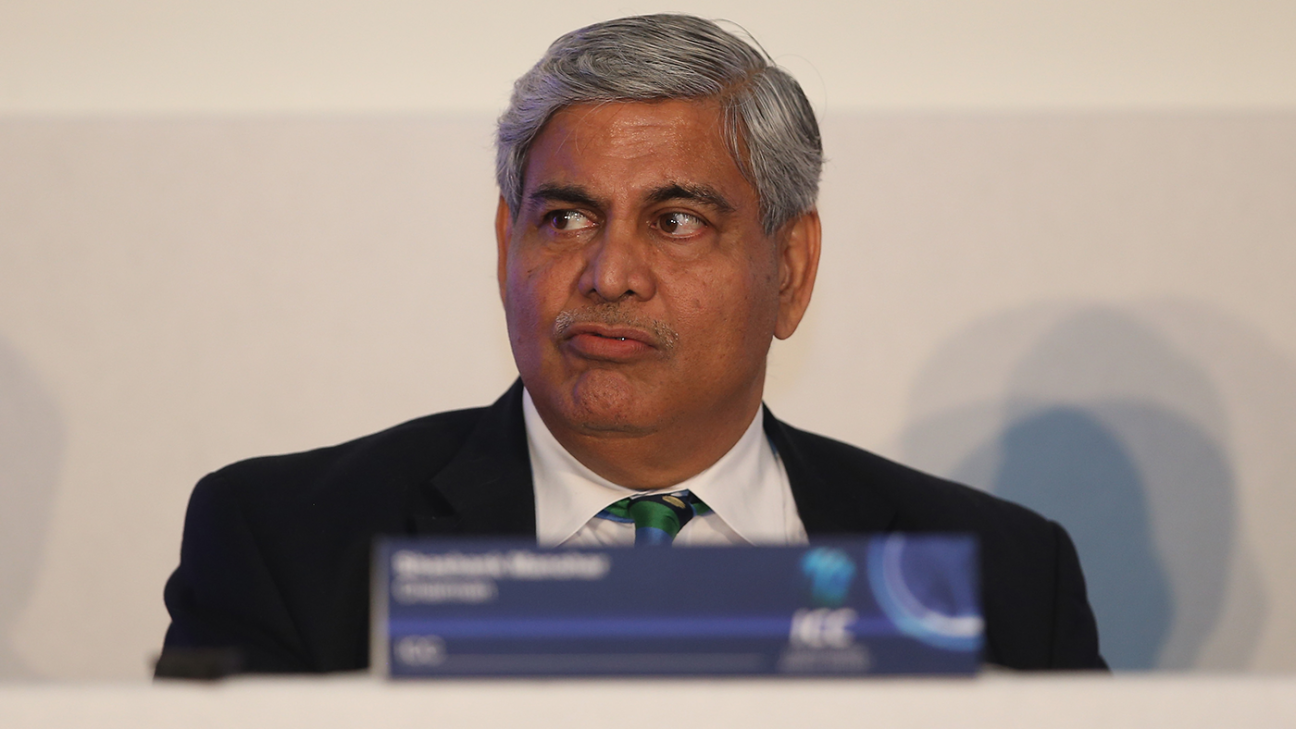
ICC chairman Shashank Manohar has indicated that he will not seek to continue in the seat when his current term ends in May 2020. Despite having the option of serving for another two years, Manohar was quoted as saying by The Hindu, "I am not interested in continuing for another two-year term."
ICC's rules allow a chairman to serve a maximum of three terms if he or she is re-elected every two years. Manohar became the global body's first independent chairman in 2016, and then was re-elected in 2018. On both occasions he was, as the sole nominee, elected unanimously by ICC directors.
He remains popular with a majority of the ICC board's 15 directors, which includes an independent woman director, the former Pepsico chairperson, Indra Nooyi. Imran Khawaja, the ICC deputy chairman, is believed to have met Manohar recently, asking him to continue for another term.
"Majority of directors have requested me to continue but I have told them that I do not wish to," Manohar said. "I have been the chairman for nearly five years. I am very clear, I do not want to continue from June 2020. My successor will be known next May. He has to be elected in May to take charge after me at the annual conference."
Manohar's tenure has been, in some ways, transformative. When he was BCCI president between 2015-16, Manohar became the first heavyweight administrator to call out the constitutional revamp of the ICC, devised by the Big Three, for "bullying".
Once he took charge as the independent chairman, Manohar rolled back the Big Three's revamp, brought in a new financial distribution model, changed the governance structure of the ICC Board and brought in an independent woman director for the first time. In the last two years, he has overseen the ICC management's plan to introduce the the World Test Championship and the ODI League, to be launched from May 2020.
His decision to not seek another term is thought to have caught the ICC management by surprise, and it is not immediately clear why he is choosing not to continue. One reason could be that Manohar is simply not inclined to chair the ICC anymore, that he is less motivated now because the ICC faces lesser challenges compared to when he took charge in 2016.
Another potential reason could be health. The October round of ICC meetings were moved from Sydney to Dubai because Manohar couldn't get on a long-haul flight to Australia: he had been advised not to do so by doctors.
An ICC director who met Manohar recently told him that they needed his strong leadership now that an elected BCCI administration was back in power. The director feared that the BCCI, using its clout, could possibly once again endanger the various reforms the ICC had adopted, or is in the process of adopting.
Although enjoys a strong support at the ICC, Manohar has polarised opinion within the BCCI where several members - among the state associations - have been critical of him for hurting India's interests when he rolled back the Big Three revamp.
As per the election rules, only a current or former ICC director can contest for the chairman's position. Each director can nominate one candidate. Nominees with the support of at least two directors are eligible to contest the election.















 Phone: (800) 737. 6040
Phone: (800) 737. 6040 Fax: (800) 825 5558
Fax: (800) 825 5558 Website:
Website:  Email:
Email: 






